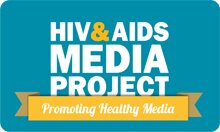The Ethics of HIV Reporting
The sensitive nature of the HIV epidemic intensifies the ethical challenges that journalists normally face in producing good stories.
This section demystifies ethical HIV journalism by applying the basic principles of ethical reporting to the epidemic.
Once you have learnt about the ethics of HIV journalism, see how these principles are enforced by the media. Take a look at the SAEF Guiding Principles.
HIV and AIDS is a story of critical importance, and all audiences deserve full, clear and intelligent coverage. Journalists should cover it with imagination and initiative, and commit themselves to the highest ethical standards.
This set of factsheets outlines some key principles to adhere to in striving to attain high ethical standards in reporting on HIV/AIDS. It is an adapted version of Franz Krüger's paper: "The ethics of reporting HIV and AIDS" for the UNAIDS/Saef/SADC Conference, 8 April 2005. For the full paper, click here.
An influential trio of principles was identified in a study by the Poynter Institute in the US in the early 1990s, on the basis of detailed interviews with hundreds of journalists and editors, and a close reading of many codes of conduct.1 These are:
- Seek truth and report it as fully as possible
- Act independently
- Minimise harm
A fourth principle is sometimes added: accountability.
For a discussion of how these principles apply to the coverage of HIV and AIDS, select the relevant sheet from the boxed menu above or simply click on the listed principles.
About the author
Franz Krüger has been a journalist for over 23 years, working in print and broadcasting in South Africa, Namibia and the United Kingdom. He lectures journalism at the University of the Witwatersrand and is the ombud for the Mail&Guardian newspaper, for which he also writes a monthly column. He is the author of Black, white and grey: ethics in South African journalism (Double Storey, 2005).






